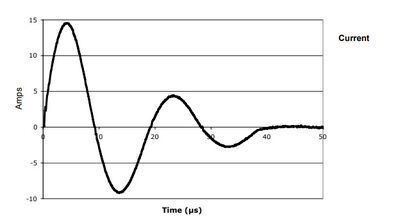- 15,636
- 5,391
I feel like the Electricity Manipulation page is very lacking in explaining how electrical attacks can actually function, as normally, electricity passing through a character has the same results regardless of durability. It more has to do with how well your body can conduct electricity. For example, there should be no such thing as a character who can "tank lightning" unless they dispersed the entire bolt, as in Real Life realistic lighting actually doesn't kill as often as it leaves people alive.
However, electricity in real life has a variety of effects that go from affecting the mind, causing the heart to shut down through interfering with your body's natural electrical pulses, inducing paralysis in limbs, et cetera. It's standard durability negation, even some of the luckiest lightning/electricity survivors suffer from some of these or need months of re-hab.
So, if we prove that a character's electricity is realistic (I.E., Black Lightning (CW)) shouldn't we also include durability negation, or better yet, specify this on the electricity manipulation page so we don't need to edit a bunch of stuff that links to it?
Sources:
https://web.archive.org/web/20150503033705/http://www.cetri.org/mechanism
http://web.physics.ucsb.edu/~phys13CH/electrical_safety.pdf
https://www.sciencedaily.com/releases/2008/05/080515113311.htm
However, electricity in real life has a variety of effects that go from affecting the mind, causing the heart to shut down through interfering with your body's natural electrical pulses, inducing paralysis in limbs, et cetera. It's standard durability negation, even some of the luckiest lightning/electricity survivors suffer from some of these or need months of re-hab.
So, if we prove that a character's electricity is realistic (I.E., Black Lightning (CW)) shouldn't we also include durability negation, or better yet, specify this on the electricity manipulation page so we don't need to edit a bunch of stuff that links to it?
Sources:
https://web.archive.org/web/20150503033705/http://www.cetri.org/mechanism
http://web.physics.ucsb.edu/~phys13CH/electrical_safety.pdf
https://www.sciencedaily.com/releases/2008/05/080515113311.htm
